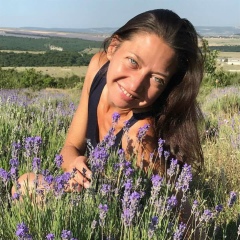In 1986, I went for the first and only time on the pilgrimage known asthe Way to Santiago, an experience I described in my first book. We had just finished walking up a small hill, a village appeared on the horizon, and it was then that my guide, whom I shall call Petrus (although that was not his name),said to me:
- We must never stop dreaming. Dreams provide nourishment for the soul, just as a meal does for the body. Many times in our lives we see our dreams shattered and our desires frustrated, but we have to continue dreaming. If we don’t, our soul dies
‘The Good Fight is the one we Fight because our heart asks it of us. The Good Fight is the one that’s fought in the name of our dreams. When we are young our dreams first explode inside us with all of their force, we are very courageous, but we haven’t yet learned how to Fight. With great effort, we learn how to Fight, but by then we no longer have the courage to go into combat. So we turn against ourselves and do battle within. We become our own worst enemy. We say that our dreams were childish, or too difficult to realize,or the result or our not having known enough about life. We kill our dreams because we are afraid to Fight the Good Fight.
“The first symptom of the process of killing our dreams is lack of time.The busiest people I have known in my life always have time enough to do everything. Those who do nothing are always tired and pay no attention to the little amount of work they are required to do. They complain constantly that the day is too short. The Truth is, they are afraid to Fight the Good Fight.“The second symptom of the death of our dreams lies in our certainties. Because we don’t want to see life as a grand adventure, we begin to think of ourselves as wise and fair and correct in asking so little of life. We look beyond the walls of our day-to-day existence, and we hear the sound of lances breaking, we smell the dust and the sweat, and we see the great defeats and the fire in the eyes of the warriors. But we never see the delight, the immense delight in the hearts of those engaged in the battle. For them, neither victory nor defeat is important; what’s important is only that they are Fighting the Good Fight.
“And, finally, the third symptom of the passing of our dreams is peace. Life becomes a Sunday afternoon; we ask for nothing grand, and we cease to demand anything more than we are willing to give. In that state we think ofourselves as being mature; we put aside the fantasies of our youth, and we seek personal and professional achievement. We are surprised when people our age say that they still want this or that out of life. But really, deep in our hearts,we know that what has happened is that we have renounced the battle for our dreams-we have refused to Fight the Good Fight.
“When we renounce our dreams and find peace, we go through a period of tranquility. But the dead dreams begin to rot within u sand to infect our entire being. We become cruel to those around us, and then we begin to direct this cruelty against ourselves.
“What we sought to avoid in combat-disappointment and defeat-came uponus because of our cowardice. And one day, the dead, spoiled dreams make it difficult to breath, and we actually seek death. It’s death that frees us from out certainties, from our work, and from that terrible peace of Sunday afternoons.”
in “ThePilgrimage”(1987)
- We must never stop dreaming. Dreams provide nourishment for the soul, just as a meal does for the body. Many times in our lives we see our dreams shattered and our desires frustrated, but we have to continue dreaming. If we don’t, our soul dies
‘The Good Fight is the one we Fight because our heart asks it of us. The Good Fight is the one that’s fought in the name of our dreams. When we are young our dreams first explode inside us with all of their force, we are very courageous, but we haven’t yet learned how to Fight. With great effort, we learn how to Fight, but by then we no longer have the courage to go into combat. So we turn against ourselves and do battle within. We become our own worst enemy. We say that our dreams were childish, or too difficult to realize,or the result or our not having known enough about life. We kill our dreams because we are afraid to Fight the Good Fight.
“The first symptom of the process of killing our dreams is lack of time.The busiest people I have known in my life always have time enough to do everything. Those who do nothing are always tired and pay no attention to the little amount of work they are required to do. They complain constantly that the day is too short. The Truth is, they are afraid to Fight the Good Fight.“The second symptom of the death of our dreams lies in our certainties. Because we don’t want to see life as a grand adventure, we begin to think of ourselves as wise and fair and correct in asking so little of life. We look beyond the walls of our day-to-day existence, and we hear the sound of lances breaking, we smell the dust and the sweat, and we see the great defeats and the fire in the eyes of the warriors. But we never see the delight, the immense delight in the hearts of those engaged in the battle. For them, neither victory nor defeat is important; what’s important is only that they are Fighting the Good Fight.
“And, finally, the third symptom of the passing of our dreams is peace. Life becomes a Sunday afternoon; we ask for nothing grand, and we cease to demand anything more than we are willing to give. In that state we think ofourselves as being mature; we put aside the fantasies of our youth, and we seek personal and professional achievement. We are surprised when people our age say that they still want this or that out of life. But really, deep in our hearts,we know that what has happened is that we have renounced the battle for our dreams-we have refused to Fight the Good Fight.
“When we renounce our dreams and find peace, we go through a period of tranquility. But the dead dreams begin to rot within u sand to infect our entire being. We become cruel to those around us, and then we begin to direct this cruelty against ourselves.
“What we sought to avoid in combat-disappointment and defeat-came uponus because of our cowardice. And one day, the dead, spoiled dreams make it difficult to breath, and we actually seek death. It’s death that frees us from out certainties, from our work, and from that terrible peace of Sunday afternoons.”
in “ThePilgrimage”(1987)
В 1986 году я впервые и единственно отправился в паломничество, известное как «Путь в Сантьяго», опыт, который я описал в своей первой книге. Мы только что закончили идти по небольшому холму, на горизонте появилась деревня, и тогда мой гид, которого я назову Петрусом (хотя это было не его имя), сказал мне:
- Мы никогда не должны перестать мечтать. Сны обеспечивают пищу для души, так же, как еда для тела. Много раз в нашей жизни мы видим, что наши мечты разбиты и наши желания расстроены, но мы должны продолжать мечтать. Если мы этого не сделаем, наша душа умрет
We Мы боремся за добрую битву, потому что наше сердце просит об этом. «Хорошая битва» - это борьба за имя нашей мечты. Когда мы молоды, наши мечты взрываются внутри нас всей их силой, мы очень смелые, но мы еще не научились сражаться. С огромным усилием мы учимся сражаться, но к тому времени у нас уже не хватает смелости вступать в бой. Итак, мы поворачиваемся против себя и сражаемся внутри. Мы становимся нашим собственным злейшим врагом. Мы говорим, что наши мечты были детскими или слишком сложными для реализации, или результатом, или тем, что мы недостаточно знали о жизни. Мы убиваем свои мечты, потому что боимся бороться с доброй борьбой.
«Первым признаком процесса убийства наших снов является нехватка времени. У самых занятых людей, которых я знаю в своей жизни, всегда есть достаточно времени, чтобы сделать все. Те, кто ничего не делают, всегда устают и не обращают внимания на тот небольшой объем работы, который им необходим для выполнения. Они постоянно жалуются, что день слишком короткий. Правда в том, что они боятся бороться с доброй борьбой. «Второй признак смерти наших снов заключается в нашей уверенности. Поскольку мы не хотим рассматривать жизнь как грандиозное приключение, мы начинаем думать о себе, как о мудрых, справедливых и правильных людях, которые так мало просят о жизни. Мы смотрим за стены нашего повседневного существования, и мы слышим звук ломающихся копий, мы чувствуем запах пыли и пота, и мы видим великие поражения и огонь в глазах воинов. Но мы никогда не видим восторга, огромного восторга в сердцах тех, кто участвует в битве. Для них не важны ни победа, ни поражение; важно только то, что они борются с доброй борьбой.
«И, наконец, третий признак смерти наших снов - мир. Жизнь становится воскресным днем; мы не просим ничего грандиозного и перестаем требовать чего-то большего, чем мы готовы дать. В этом состоянии мы думаем о себе как о зрелом; Мы откладываем фантазии нашей молодежи и стремимся к личным и профессиональным достижениям. Мы удивляемся, когда люди нашего возраста говорят, что они все еще хотят того или другого из жизни. Но на самом деле, глубоко в наших сердцах мы знаем, что произошло то, что мы отказались от битвы за свои мечты - мы отказались бороться с доброй борьбой.
«Когда мы отказываемся от своих мечтаний и обретаем мир, мы переживаем период спокойствия. Но мертвые сны начинают гнить в песке, чтобы заразить все наше существо. Мы становимся жестокими по отношению к окружающим, а затем начинаем направлять эту жестокость на себя.
«То, чего мы стремились избежать в бою - разочарование и поражение - наступило благодаря нашей трусости. И однажды мертвые, испорченные сны мешают дышать, и мы на самом деле ищем смерти. Именно смерть освобождает нас от определенности, от нашей работы и от этого ужасного покоя воскресных дней ».
в «ThePilgrimage» (1987)
- Мы никогда не должны перестать мечтать. Сны обеспечивают пищу для души, так же, как еда для тела. Много раз в нашей жизни мы видим, что наши мечты разбиты и наши желания расстроены, но мы должны продолжать мечтать. Если мы этого не сделаем, наша душа умрет
We Мы боремся за добрую битву, потому что наше сердце просит об этом. «Хорошая битва» - это борьба за имя нашей мечты. Когда мы молоды, наши мечты взрываются внутри нас всей их силой, мы очень смелые, но мы еще не научились сражаться. С огромным усилием мы учимся сражаться, но к тому времени у нас уже не хватает смелости вступать в бой. Итак, мы поворачиваемся против себя и сражаемся внутри. Мы становимся нашим собственным злейшим врагом. Мы говорим, что наши мечты были детскими или слишком сложными для реализации, или результатом, или тем, что мы недостаточно знали о жизни. Мы убиваем свои мечты, потому что боимся бороться с доброй борьбой.
«Первым признаком процесса убийства наших снов является нехватка времени. У самых занятых людей, которых я знаю в своей жизни, всегда есть достаточно времени, чтобы сделать все. Те, кто ничего не делают, всегда устают и не обращают внимания на тот небольшой объем работы, который им необходим для выполнения. Они постоянно жалуются, что день слишком короткий. Правда в том, что они боятся бороться с доброй борьбой. «Второй признак смерти наших снов заключается в нашей уверенности. Поскольку мы не хотим рассматривать жизнь как грандиозное приключение, мы начинаем думать о себе, как о мудрых, справедливых и правильных людях, которые так мало просят о жизни. Мы смотрим за стены нашего повседневного существования, и мы слышим звук ломающихся копий, мы чувствуем запах пыли и пота, и мы видим великие поражения и огонь в глазах воинов. Но мы никогда не видим восторга, огромного восторга в сердцах тех, кто участвует в битве. Для них не важны ни победа, ни поражение; важно только то, что они борются с доброй борьбой.
«И, наконец, третий признак смерти наших снов - мир. Жизнь становится воскресным днем; мы не просим ничего грандиозного и перестаем требовать чего-то большего, чем мы готовы дать. В этом состоянии мы думаем о себе как о зрелом; Мы откладываем фантазии нашей молодежи и стремимся к личным и профессиональным достижениям. Мы удивляемся, когда люди нашего возраста говорят, что они все еще хотят того или другого из жизни. Но на самом деле, глубоко в наших сердцах мы знаем, что произошло то, что мы отказались от битвы за свои мечты - мы отказались бороться с доброй борьбой.
«Когда мы отказываемся от своих мечтаний и обретаем мир, мы переживаем период спокойствия. Но мертвые сны начинают гнить в песке, чтобы заразить все наше существо. Мы становимся жестокими по отношению к окружающим, а затем начинаем направлять эту жестокость на себя.
«То, чего мы стремились избежать в бою - разочарование и поражение - наступило благодаря нашей трусости. И однажды мертвые, испорченные сны мешают дышать, и мы на самом деле ищем смерти. Именно смерть освобождает нас от определенности, от нашей работы и от этого ужасного покоя воскресных дней ».
в «ThePilgrimage» (1987)
У записи 1 лайков,
1 репостов.
1 репостов.
Эту запись оставил(а) на своей стене Zara Green





















